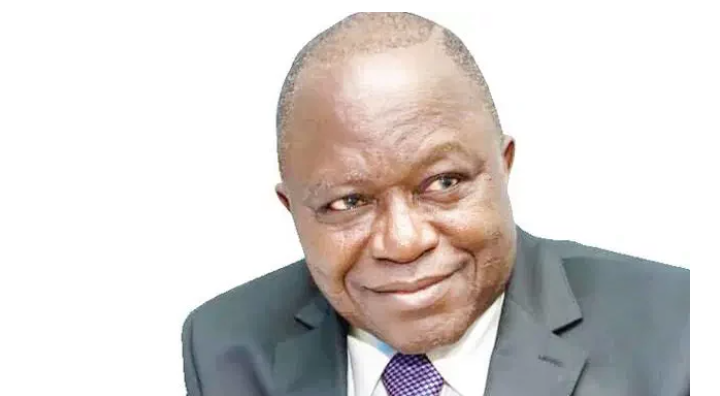
• Says Tinubu, NASS crucial to judgment implementation
Legal practitioner Mr Niyi Akintola (SAN) has expressed fears that the July 11 Supreme Court judgement on local government financial autonomy might remain another paper judgement, only implementable in the nation’s statutes and law reports.
Though he noted that the judgement, if implemented, had prospects for good governance, Akintola noted that the issues with the judgement include the fact that it usurped the functions of the National Assembly to make or amend laws, failed to take into account the sociological facts of the country and the various local government areas, and may have created more problems than it sought to resolve.
He, however, noted that President Bola Tinubu and the National Assembly were crucial for the implementation of the judgement and effecting the necessary amendments to the constitution of the Federal Republic of Nigeria.
Akintola made these observations as keynote speaker at the Professor Antonia Simbine-led National Institute for Social and Economic Research (NISER) seminar series with the theme “Reflections on the Supreme Court Judgement on Local Government Financial Autonomy,” held at NISER, Ibadan, on Tuesday.
He noted that the federal government may have realised the challenge of implementing the judgement and hence constituted an implementation committee headed by the secretary to the government of the federation, Senator George Akume.
Akintola said the committee may come up with another joint account committee for states that will sort out the issues of payment of salaries of teachers, health workers, and emoluments of other essential services workers.
Though he noted that the judgement was a popular judicial intervention in the body politic, Akintola noted that the ruling may also be deemed a populist move by the judiciary to sway the public opinion and perception towards laundering its image.
In particular, Akintola argued that legs 1, 2, 3, 4, and 8 of the 11 declarative reliefs granted by the court were mere reinstatements of earlier judgements of the same Supreme Court, apart from reliefs 12, 13, and 14, which were declarative orders of injunction directing the payment of statutory allocation standing to the credit of each local government.
He argued that giving a literal meaning to the word “shall” in subsection 5 of Section 162 of the 1999 Constitution, which imposes a mandatory duty on the federation to pay local government council allocation only through the states, would defeat the objective of the constitution, result in unconstitutionalities, illegalities, or cause injustice or unworkable situations.
Rather, he held that the word ‘shall’ should be purposefully read as permissive or discretionary and not interpreted as mandatory duty.
He noted that calls for review of the judgement and amendment of the Constitution were in order to ensure that the judgement would not only be enforceable but be the fulcrum for good governance at the local government level, a reason for which the federal government initiated the action.
Akintola said the minority judgement of Adewale Abiru has also anticipated the fears expressed by critical stakeholders at the local government level to the effect that paying local government funds directly to the local government purse may send them back to the era where salaries were not paid for several months.
He also said the majority judgement created a third system for the Nigerian federation, which the Constitution never envisaged.
Akintola said: “By and large, the implications of the judgement have been clearly identified in this paper, but its prospects as to good governance depend more on its implementation; otherwise, the judgement will remain another paper judgement like the onshore and offshore judgements of the Supreme Court, the Child Rights Act, or better yet, the Bigamy Act, all of which have remained implementable in our statutes and law reports.
“The Federal government, realising the clog on the wheel of implementation of the judgement, recently constituted an implementation committee headed by the secretary to the government of the federation, Sen. George Akume.
“The committee will probably come up with another joint account committee for the states, which will inevitably have to sort out the payment of the staff salaries, teachers’ salaries, health workers salaries, and other essential services emoluments that the municipal local government across the country might not be able to meet if local government funds are paid directly to each of the local governments as directed by the Supreme Court.
“On the whole, the bucks stop on the table of Mr. President and the National Assembly for the implementation of the judgement and effecting necessary amendments to the constitution of the Federal Republic of Nigeria.
“There is no denying the fact that the majority judgement created unknowingly a third-tier system for the Nigerian Federation, which the constitution of the Federal Republic of Nigeria never envisaged.
“The lead judgement declared emphatically that the local government is the third tier of government in Nigeria, which the schedules of legislation in the constitution of the Federal Republic of Nigeria never envisaged. The legislative list in Nigeria is merely two: the federal and state powers, respectively.
“The first is the exclusive legislative list made up of 68 items, while the second relates to the states, which are made up of 30 items. The third legislative list, as it were, is known as the residual legislative list, which is not written but none of its legislative list relates to the local government with powers to make laws or form a federating unit, but unwittingly the local government autonomy judgement has by mere declaration imposed a third tier of governments on the nation.
“These are part of the problems identified by the sociologists in the judgement. The fourth schedule to the constitution merely states the functions of local government but no specific legislative power as it were for the local governments.”
In her opening remarks, director general of NISER, Professor Anthonia Simbine, said the seminar aimed at the development of actionable plans for the implementation of Supreme Court judgements towards having effective local government administration.
